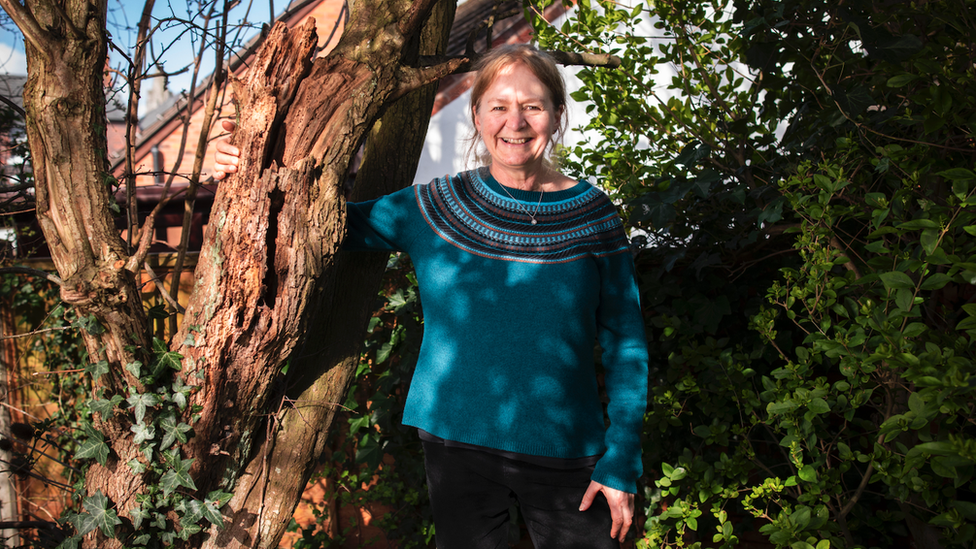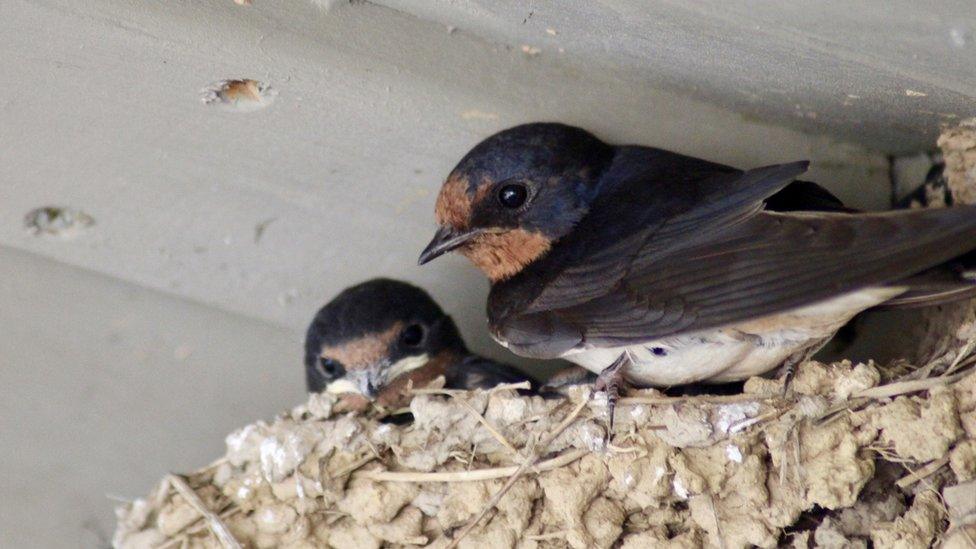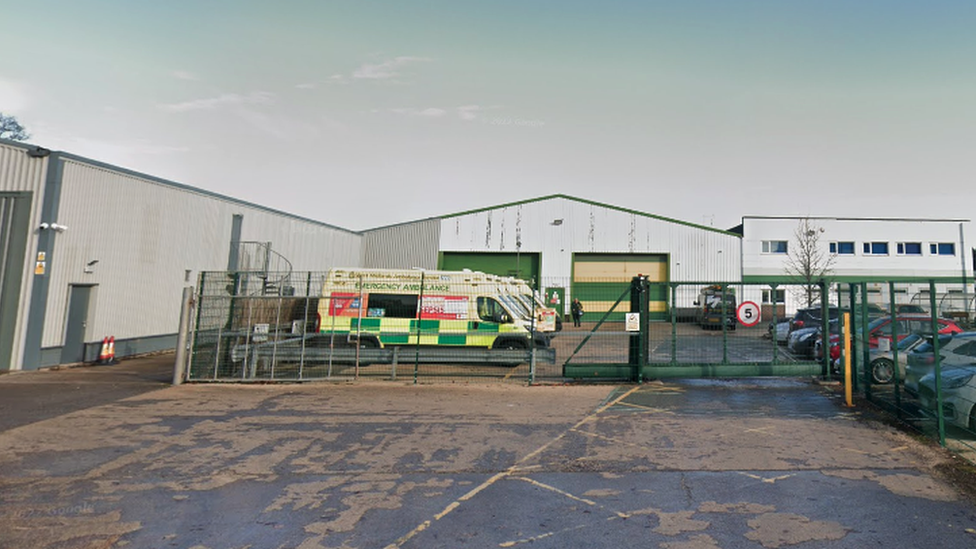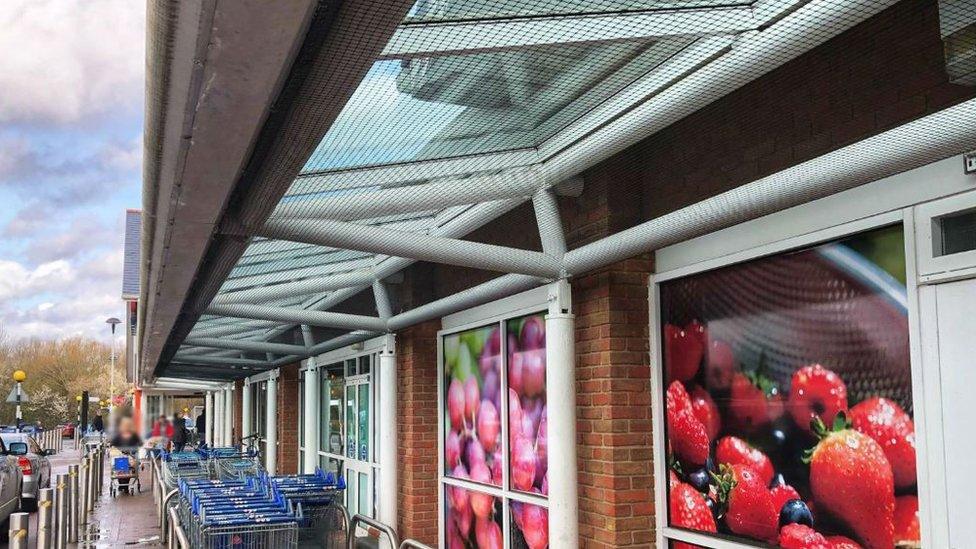Removal of swallows from Shrewsbury ambulance site 'misguided'
- Published

Sarah Gibson said moving the colony could harm the birds
The removal of a colony of swallows nesting at an ambulance station seems to be "totally unnecessary and misguided", a conservationist has said.
West Midlands Ambulance Service said a licence has been granted for the immediate removal of the birds from its Shrewsbury site.
But Sarah Gibson maintained it would be "hugely stressful" for the animals.
The trust said it had been left with "no option" other than to act.
It complained the birds' droppings pose a risk of infecting clinical equipment stored at the site.
According to Ms Gibson, an author and former Shropshire Wildlife Trust worker of 23 years, the colony - consisting of numerous nesting pairs and many young - would leave on their own in a few weeks' time anyway.

Swallows, such as these, have nested at the Shrewsbury site and are raising their young
"[The birds will] be heading back to Africa where they spend their winters, having raised their young," Ms Gibson explained.
The species was in "steep decline", she added, saying moving them would endanger the young that had not fully fledged.
An ambulance service spokesman said "we simply cannot have birds" in the garage, an area where clinical equipment was maintained.
"Not only do the birds make it an unpleasant place to work, they are causing damage to equipment and there is the risk of their droppings infecting clinical equipment, a matter which has real risks for patients," he added.
He suggested a monthly clean-up bill for the equipment of £3,000, although it was not clear whether the sum was directly linked to the birds, but he explained: "The last thing we want to do is cause harm to the birds, but we cannot continue as we are with the infection risk to patients and the costs that should be invested in patient care."

West Midlands Ambulance Service said it planned to rehome the nesting swallow colony
A licence to remove the protected migratory birds was granted by Natural England.
It said all "other options were considered" before the licence was approved.
"Natural England takes the protection of wildlife extremely seriously and it is rare to receive an application of this nature," Emma Johnson, Area Manager for Natural England in the West Midlands said.
She said it was granted "due to the exceptional circumstance" that the swallow droppings were "contaminating life-saving equipment and posed a risk to health and safety".
The ambulance service said it would attempt to rehome any birds found in nests and had been put in touch with a charity to help with that.
"We will also put up bird boxes outside the building, should the birds come back, in the hope that they will not try and nest in the garage again," a spokesperson added.
However, Ms Gibson said the birds had returned to nest at the site for about the past seven years "and there's never been a problem before".
She added: "And how to do you rehome a wild bird?"

Follow BBC West Midlands on Facebook, external, Twitter, external and Instagram, external. Send your story ideas to: newsonline.westmidlands@bbc.co.uk, external
Related topics
- Published28 April 2019

- Published16 March 2019

- Published15 March 2019
